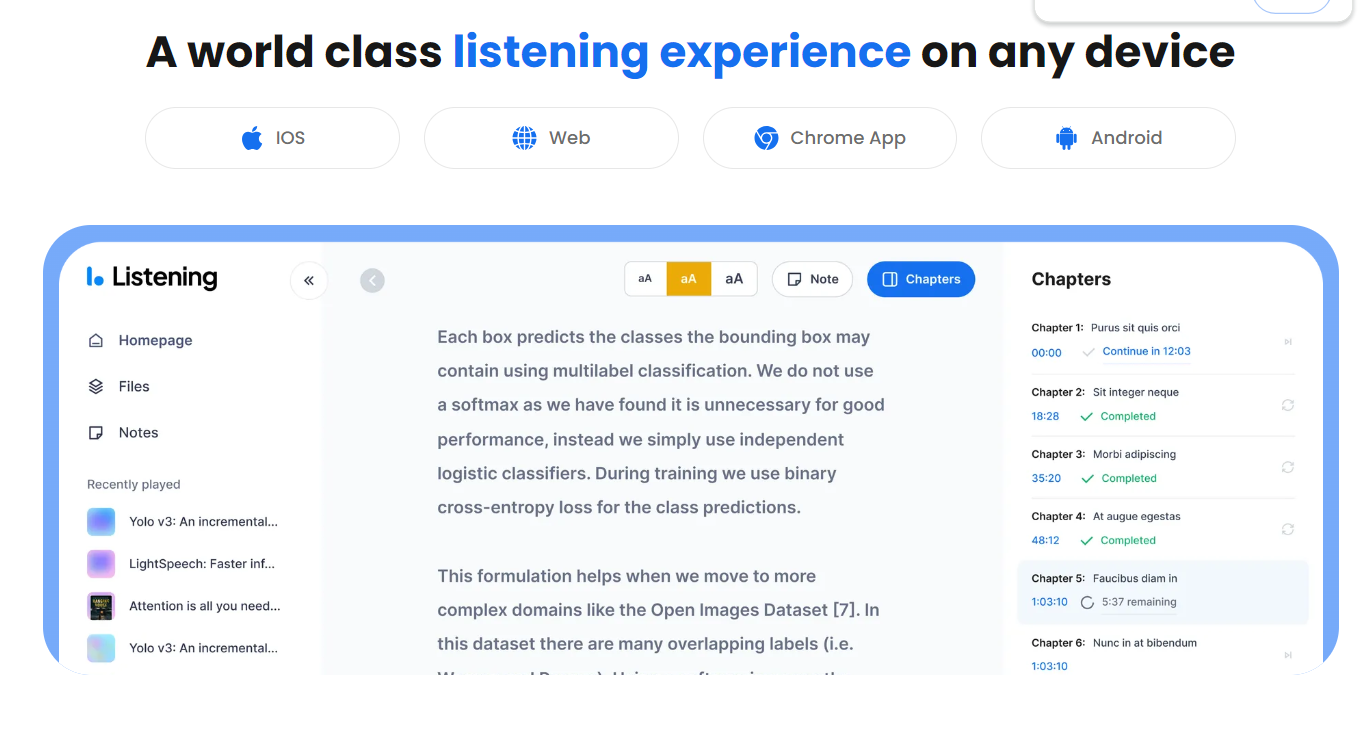Are you an adult struggling with reading, writing, or managing your time? These could be signs of learning disability in adults. Learning disabilities, also called learning differences or specific learning disorders, often start in childhood but can continue into adulthood or be diagnosed later in life.
Dyslexia, the most common learning disability, is a receptive language-based disorder that requires remediation in decoding, fluency training, vocabulary, and comprehension.
Recognizing these signs is key to understanding your challenges and getting help, whether through a learning disabilities association, adult education, or a healthcare professional.
In this article, we’ll explore three common signs of learning disability in adults and discuss the importance of early intervention.
Sign 1: Difficulties with Reading, Writing, or Math due to a Learning Disability
One of the signs of learning disability in adults is having a hard time with reading and writing or poor math skills. This may show up as trouble with reading comprehension, even if you can read the words out loud.
Struggles with Reading Comprehension
Some specific reading problems include:
- Difficulty understanding main ideas or key points of a written language
- Trouble following written instructions or directions
- Struggling to summarize or recall what has been read
- Difficulty connecting information from different parts of a text
- Slow reading speed or the need to re-read passages multiple times
Challenges with Spelling and Grammar
You might also struggle with writing skills, such as spelling or grammar, making it hard to express your thoughts in writing.
These challenges, which are common learning disabilities, can manifest as:
- Frequently misspelling words or inconsistent spelling of the same word
- Difficulty with phonics or sounding out new words
- Poor understanding of grammar rules and sentence structure
- Trouble expressing thoughts or ideas in writing
- Tendency to omit or misuse punctuation marks
If you’re an adult struggling with a reading disability, one way to cope is by using a text-to-speech app like Listening.com. Text-to-speech technology can help you access written content by converting it into spoken language, making it easier to process and understand information.
If you’re an auditory learner, try Listening.com today to experience using text-to-speech yourself.

Trouble with Basic Mathematical Calculations
Basic mathematical calculations, like adding, subtracting, multiplying, and dividing, may be challenging, especially when working with money or measurements.
People with learning disabilities or neurodevelopmental disorders may experience:
- Difficulty with fundamental math problems and concepts
- Struggles with understanding and applying mathematical calculations
- Trouble with math-related tasks in daily life, such as managing finances or measuring ingredients
- Difficulty telling time or understanding time-related concepts
- Challenges with estimating quantities or distances
For example, an adult with an undiagnosed learning difficulty or specific learning disorders like language processing disorder or nonverbal learning disabilities might have trouble following written instructions, filling out forms correctly, or calculating a tip at a restaurant.
This can lead to low self-esteem and emotional issues.

Photo by Pexels
Many adults may struggle to read and comprehend emails, reports, or instructions at work, leading to missed deadlines or task errors.
When filling out important forms or applications, an adult with learning problems may make spelling or grammatical errors that could lead to misunderstandings or rejection.
Adults may have trouble calculating their share of a bill or tip, causing embarrassment or frustration. An adult may consistently struggle with problem-solving, staying focused, or managing their schedule effectively, resulting in lateness or missed appointments.
These learning difficulties can impact daily life, work performance, and self-esteem. It’s essential to recognize these common signs and seek support from professionals, such as a learning disabilities association, healthcare professional, or through adult education.
An official diagnosis may involve a physical and neurological exam, achievement tests, an IQ test, and a review of medical history. With proper diagnosis and interventions, including assistive technology and special education, adults with these lifelong conditions can develop coping strategies and access accommodations to help them succeed personally and professionally.
Addressing these symptoms of learning disabilities can improve critical thinking, social skills, and their overall quality of life.
Sign 2: Poor Time Management and Organization Skills
Another common sign of learning disabilities in adults is difficulty with time management and organization.
People with learning disorders or neurodevelopmental disorders like attention deficit hyperactivity disorder (ADHD), autism spectrum disorder, or nonverbal learning disabilities may struggle to meet deadlines, manage tasks effectively, and maintain a structured schedule.
Difficulty meeting deadlines and managing tasks
This can manifest as:
- Consistently submitting work or assignments late
- Underestimating the time needed to complete tasks
- Difficulty breaking down larger projects into smaller, manageable steps
- Procrastination or avoiding tasks altogether due to feelings of overwhelm
Struggles with planning and prioritizing
Planning and prioritizing can also be challenging for adults with difficulties or specific learning disorders. They may:
- Struggle to identify which tasks are most important or time-sensitive
- Have difficulty creating and following a plan to complete tasks efficiently
- Become easily sidetracked by less important tasks or distractions
- Experience stress, anxiety, or other mental health conditions when faced with multiple tasks or competing priorities
Tendency to lose or misplace items frequently
Individuals with a learning disability may also have a tendency to lose or misplace items frequently. This can include:
- Regularly misplacing important documents, keys, or personal belongings
- Difficulty remembering where items were last placed or used
- Struggling to maintain an organized workspace or living area
- Frequently purchasing replacements for lost items
Real-life scenarios where poor time management and organization skills can impact people with learning disabilities include:
- An adult with an undiagnosed learning disability or attention deficit disorder may consistently arrive late to work or miss important meetings due to difficulty estimating travel time or remembering scheduled events.
- When working on a complex project, an adult with learning problems may struggle to break it down into smaller tasks, leading to procrastination and missed deadlines.
- In their personal life, an adult with a specific learning disability may frequently misplace bills or forget to pay them on time, resulting in late fees or financial stress.
- An adult with learning difficulties may struggle to maintain an organized home, leading to feelings of frustration or low self-esteem when hosting guests.
Poor time management and organization skills can significantly impact an adult’s personal and professional life, leading to emotional issues, stress, and lower self-esteem.
Recognizing these common signs and seeking support from a learning disabilities association, a healthcare professional specializing in neurodevelopmental disorders can help individuals develop strategies and coping mechanisms.

Photo by Freepik
This may include using assistive technology, such as calendar apps or reminder systems, and learning techniques for breaking down tasks, problem-solving, and prioritizing responsibilities.
By addressing these symptoms of learning disabilities, adults can improve their ability to manage their time, stay focused, and organize their lives more effectively, leading to greater success and overall well-being.
This can be particularly important for those individuals who may not have received an official diagnosis or special education services at a young age. With the right support and basic tools, many adults with these lifelong conditions can develop critical thinking, social skills, and self-discipline.
Family members can also play a crucial role in supporting individuals with learning disabilities by understanding their unique challenges and helping them access the resources they need to succeed.
Sign 3: Trouble with Memory and Concentration
A third common sign of learning disabilities in adults is difficulty with memory and concentration.
Adults with learning disorders, such as attention deficit hyperactivity disorder (ADHD), autism spectrum disorder, or other specific learning disabilities, may struggle to remember information or instructions, even when they are paying attention.
Difficulty remembering information or instructions
This can manifest as:
- Forgetting important dates, deadlines, or appointments
- Difficulty recalling information from reading and writing tasks or lectures
- Struggling to remember multi-step instructions or directions
- Frequently asking for information to be repeated or clarified
Challenges with focusing on tasks for extended periods
Challenges with focusing on tasks for extended periods are also common among adults with learning difficulties. They may:
- Have trouble staying focused during meetings, lectures, or conversations
- Struggle to complete tasks that require sustained attention, such as writing or problem-solving
- Become easily fatigued or mentally drained when working on tasks for long periods
- Experience difficulty resuming a task after an interruption or distraction
Tendency to be easily distracted
Individuals with learning differences or undiagnosed learning disabilities may also have a tendency to be easily distracted. This can include:
- Becoming sidetracked by external stimuli, such as noise or movement
- Having difficulty filtering out irrelevant information or thoughts
- Struggling to prioritize tasks or focus on the most critical aspects of a project
- Frequently shifting attention between tasks or activities without completing them
Examples and Real-Life Scenarios of Specific Learning Disorders
Real-life scenarios where trouble with memory and concentration can impact adults with learning disabilities include:
- An adult with an undiagnosed learning disability may struggle to remember important client information during a work meeting, leading to emotional issues or lost business opportunities.
- When reading a book or article, an adult with a specific learning disability may have difficulty concentrating and processing information, leading to frustration or the need to re-read passages multiple times.
- In a classroom or training setting, an adult with learning problems may become easily distracted by other teaching students or environmental factors, causing them to miss important information or fall behind.
- An adult with attention deficit disorder may have trouble remembering to complete household chores or pay bills on time, leading to stress and potential financial consequences.
Trouble with memory and concentration can significantly impact an adult’s person’s ability to learn, work, and manage daily responsibilities.
These challenges can lead to feelings of frustration, anxiety, and low self-esteem.
However, by recognizing these common signs and seeking support from a healthcare professional, individuals can develop strategies to improve their memory and concentration skills.
This may include using assistive technology, such as note-taking apps or recording devices, and learning techniques for active listening, chunking information, and creating visual aids.
Addressing these symptoms of learning disabilities can help adults with neurodevelopmental disorders or learning differences maximize their potential and achieve success in their personal and professional lives.
It’s important to note that trouble with memory and concentration can also be signs of other conditions, such as mental health conditions or neurological differences.
A comprehensive evaluation by a healthcare professional, including a physical and neurological exam, achievement tests, an IQ test, and a review of medical history, can help determine the underlying cause of these challenges and guide appropriate interventions.
With the right support and accommodations, many adults with the most common learning disabilities can develop the skills and strategies needed to thrive and lead fulfilling lives.
A family member can also play a crucial role in supporting adults with developmental disabilities or intellectual disabilities by understanding their unique challenges and helping them access the resources they need to succeed.
This may involve advocating for official diagnoses, accommodations in the workplace or educational settings, and connecting with support groups or organizations that specialize in helping adults with learning disabilities develop critical thinking, social skills, and self-esteem.
By working together and utilizing available resources, individuals with learning disabilities and their families can overcome obstacles and achieve their full potential.
When to Seek Help for Undiagnosed Learning Disabilities

Photo by MART PRODUCTION, Pexels
Recognizing the signs of learning disabilities in adults is crucial, as early intervention and support can make a significant difference in managing symptoms and improving overall quality of life.
If you or a loved one are experiencing difficulties with reading and writing, math problems, time management, organization, memory, or concentration, it’s essential to seek help from professionals who specialize in learning disorders.
Importance of early intervention
Early intervention is key to addressing learning disabilities and preventing them from negatively impacting an individual’s person’s ability to succeed in their personal, academic, and professional life.
By seeking help early on, adults with learning difficulties or undiagnosed learning disabilities can access resources, develop coping strategies, and build the skills needed to overcome challenges.
Delaying intervention may lead to increased frustration, emotional issues, and low self-esteem, making it more challenging to navigate the most common learning disabilities in the long run.
Professional assessments and diagnoses
To accurately identify a specific learning disability, such as attention deficit hyperactivity disorder (ADHD), autism spectrum disorder, or attention deficit disorder, it’s important to undergo a comprehensive assessment by a qualified professional.
These assessments may include cognitive and achievement tests, as well as a neurological exam and a review of an individual’s developmental milestones, medical history, and academic performance.
A professional diagnosis based on the criteria outlined by the American Psychiatric Association can help pinpoint specific areas of difficulty and guide the development of an individualized treatment plan.
Available resources and support systems
There are numerous resources and support systems available for adults with learning disabilities. These may include:
- Organizations that provide information, resources, and advocacy for individuals with the most common learning disabilities
- Adult education programs and workshops that teach strategies for managing learning difficulties and developing skills in areas such as reading and writing, problem-solving, and spatial awareness
- Assistive technology, such as text-to-speech apps, organizational apps, and tools to help with poor handwriting or difficulty reading
- Accommodations in the workplace or educational settings, such as extra time for tasks or exams, quiet workspaces, or modified assignments to support new learning
- Professionals who can help address the emotional impact of learning disabilities and develop coping strategies for managing stress and building self-esteem
- Support groups and networks that connect individuals with learning differences and provide a platform for sharing experiences and advice
By seeking help and accessing these resources, adults with learning disabilities can gain the tools and support needed to overcome obstacles, process information effectively, and reach their full potential.
Final Thoughts on Learning Disability Signs in Adults
In this article, we explored three common signs of learning disability in adults: difficulties with reading and writing; poor time management and organization skills; and trouble with memory and concentration.
Identifying these signs is an important first step in seeking the help and support needed to manage the most common learning disabilities effectively.
If you or a family member are experiencing these signs, it’s crucial to reach out for help.
Remember, seeking support is a sign of strength, not weakness. With the right resources, strategies, and accommodations, adults with all types of learning disabilities can overcome challenges and achieve success in their personal and professional lives.
It’s also important to emphasize that learning disabilities do not define an individual’s intelligence, creativity, or potential for success.
Many adults with learning differences go on to lead fulfilling lives and make significant contributions to their communities and chosen fields. By focusing on strengths, developing coping strategies, and accessing support, adults with disabilities can thrive and reach their goals.
If you suspect that you or a loved one may have an undiagnosed learning disability, take the first step by reaching out to a qualified professional or organization specializing in learning disorders.
With the right support and resources, you can navigate the challenges of learning disabilities and unlock your full potential, regardless of whether you faced these difficulties in your school years or later in life. Remember, it’s never too late to seek help and start your journey towards success.









